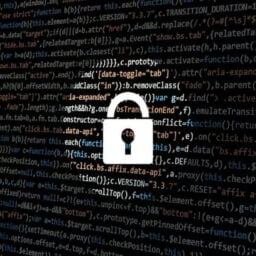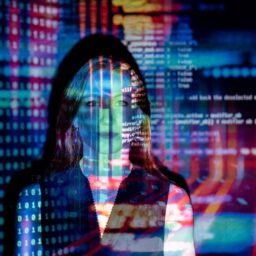INTRODUCTION[1]
Cyberlaw, also known as cybercrime law, is legislation that focuses on the acceptability of the behavioural usage of technology that mainly involves a computer, computer hardware, and software, the internet networks. In such vast diversification, Cyberlaw helps in protecting the users from harm by sanctioning the investigation and scrutinization of the criminal activities performed online. The applicable areas include individuals, groups, the public, government, and private organizations.[2]
CYBER LAW IN DIFFERENT COUNTRIES
Cyberlaw has a global impact on today’s community nationwide. However, the adoption of legislation in cybercrimes may vary from country to country. Today 72% of countries have strict cyber law, 9% have draft legislation leaving the rest 18% with no cyber law, according to 2019 data from the United Nation.[3] A wide majority of states have launched initiatives to develop new cyber laws. Even a few countries amended their national code with legislative language on cybercrime.
CYBER LAW IN INDIA
In simpler words, when a computer is used as a tool or a target to cause harm, nuisance, defamation, forgery, or any other kind of personal damage, all of which a subject to the Indian Penal Code. The Information Technologies act 2000[4] addresses to abuse of computers in the modern era.
SIGNIFICANCE OF CYBER LAW IN INDIA
With the first-ever introduction to the usage of the internet, the founding fathers had no predilection that a time would come when the internet may reshape itself into a tool that could be misused very easily, involving the tiniest to a very grave criminal activity. All at the fingertip of an individual being anonymous, the misuse is now possible in a variety of ways with liberty and privilege. Hence, the need if cyber law arises.
CYBER LAWS THAT ONE MUST ALWAYS KEEP IN MIND BEFORE USING THE INTERNET
In today’s era, the internet is like life. A good wholesome amount of our time is spent exploring amazing things on the internet, but it comes with a fair share of trouble as well. With ease in technology and the usage of the internet all across the country, cybercrime now catches the nation’s eye. So, to regulate the activities for protecting the rights of an Internet user, the government of India has the Information and Technology Act 2000. Here are few sections that empower Internet users to safeguard their rights and privacy in cyberspace.
The IT Act 2000 lays down certain provisions for safe and secure usage of the internet [5]
- Anyone who deceitfully uses the password, digital signature, or any other unique identification of another person can be punished with imprisonment up to 3 years or a fine up to 1 Lakh INR or both.
- If an individual cheats on someone using a computer resource or any other communication device, he/she shall face imprisonment up to 3 years or a fine up to 1 Lakh INR or both.
- If individual attempts to capture, transmit or publish an image of some other person with his/her consent then that individual shall face imprisonment up to 3 years or a fine up to 2 Lakhs INR or both.
There are also various schemes launched by the Government in order to tackle the Cyber Crimes
Indian Cyber Crime Coordination Centre
To tackle Cyber Crime in a more coordinated and effective manner “The Ministry of Home Affairs” (MHA) took the initiative to launch the Indian Cyber Coordination Centre. The scheme had a duration period of 2018 to 2020.[6]
Agenda of the scheme
- To help the nation in fighting back the cyber threats
- To eliminate the misuse of the internet to prevent cyber terrorism.
- To help with new suggestions and amendments following the fast-changing technologies.
- To conduct all the activities regarding Mutual Legal Assistance Treaties.
Cyber Swachhta Kendra or Botnet Cleaning and Malware Analysis Centre[7]
In pursuit of creating a secure cyber network space by detection of botnet functions in India and to alarm the end-users regarding the infection of the computer system and to provide them assistance in the system cleansing, the Ministry of Information and Technology took the initiative to launch the Cyber Swachhta Kendra.
The major collaborating partners of the Cyber Swachhta Kendra include the Department of Telecommunication, Major internet service providers, Antivirus companies, etc.
Prevention of Cyber Crime against women and children
This is a Ministry of Home Affairs-led scheme to acquire an effective mechanism to tackle cybercrime against women and children. This scheme has five major components,
- Online Cybercrime reporting unit – An online portal through the help of which a complaint against cybercrime could be made by the victim.
- Forensic unit – A special unit was developed for preserving and collecting all the evidence and analyzing it according to the provisions laid down in the IT Act 2000.
- Capacity building unit–The prime focus of this unit was to enhance the capacity of the state police force, prosecutors, and judicial officers for all the required capabilities regarding detection.
- R&D unit–A special unit to detect new and suspicious content in cyberspace.
- Awareness creation unit – This unit primarily focuses on creating and spreading awareness among the citizens to prevent them from committing and being a victim of cybercrime. The awareness communication is done via a web portal, advertisement and mobile app.
Conclusion
Why do we need to have cyber law? We all must keep in mind that cyberspace is a major heritage of our lives in today’s growing technology. The virtual world depends on it now more than ever, and every individual must contribute towards safe and secure cyberspace by following the rules and regulations laid down by Cyberlaw in the IT Act 2000. Because in a country where cyberspace is secure and without any fear for crime, the arms by themselves will stretch to welcome humanity.
Author(s) Name: Shubhanshu Pandey (Prof. Rajendra Singh University)
References:
[1] Vikaspedia, ‘Cyber Crime FAQ’, <https://vikaspedia.in/education/digital-litercy/information-security/cyber-crime-faqs#section1> accessed 4th August 2021
[2] Online Norwich Dictionary, ‘What is Cyber security’, <https://online.norwich.edu/academic-programs/resources/cyber-law-definition> accessed 4th August 2021
[3] IT Act 2000, <https://www.meity.gov.in/content/information-technology-act-2000> accessed 4th August 2021.
[4] Ministry of Home Affairs, <https://www.meity.gov.in/content/information-technology-act-2000> accessed 4th August 2021
[5] Note 3
[6] Indian Cyber Crime Coordination Centre, ‘Details about Indian Cyber Crime Coordination Centre I4C’ <https://www.mha.gov.in/division_of_mha/cyber-and-information-security-cis-division/Details-about-Indian-Cybercrime-Coordination-Centre-I4C-Scheme> accessed 5th August 2021
[7] ‘Cyber Swachhta Kendra’, <https://www.cyberswachhtakendra.gov.in/about.html> accessed 4th August 2021









